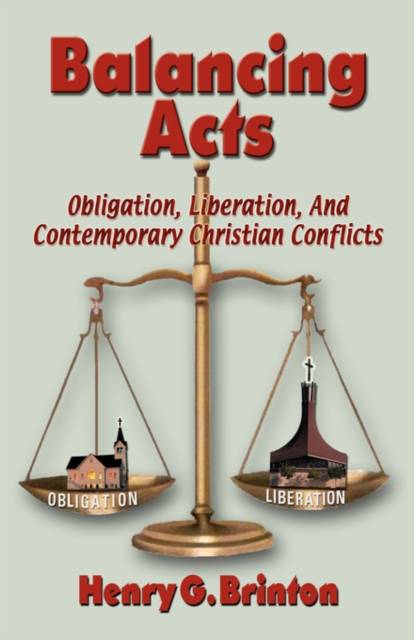
- Retrait gratuit dans votre magasin Club
- 7.000.000 titres dans notre catalogue
- Payer en toute sécurité
- Toujours un magasin près de chez vous
- Retrait gratuit dans votre magasin Club
- 7.000.0000 titres dans notre catalogue
- Payer en toute sécurité
- Toujours un magasin près de chez vous
Description
Henry Brinton identifies the social and political phenomenon of our time -- the increasing tendency of people to live and worship in like-minded communities. Not only does Brinton explain the theological basis for this ideological segregation, but he shows in dozens of examples the way a polarized country can regain its balance. Bill Bishop, Staff Writer Austin American-Statesman American congregations are more divided than ever over a broad range of theological and social issues -- and this book outlines an innovative way to understand and address these difficult conflicts. Balancing Acts introduces readers to the two major spiritual themes that animate life in America today -- obligation and liberation -- and discusses how most Christians align themselves with one of these attitudes. One group focuses on the obligations of religious life and seeks moral clarity, while the other tends to see religion as a liberation movement and stresses God's love for the oppressed of the earth. The ability to strike a balance between these competing camps is the key to managing tension in the church and in the larger community -- and Balancing Acts provides readers with the tools to find and nurture Christian unity in the face of political, cultural, and theological diversity. Whether the issue is women in ministry, presidential politics, immigration, homosexuality, or war, this book demonstrates how common ground can be found by people of faith who are willing to perform a balancing act between obligation and liberation. In Balancing Acts, Henry Brinton draws on his own rich experience to offer a way of approaching hot-button social issues with both pastoral and prophetic care. It's a useful read for any pastor and should stimulate discussion in congregations everywhere. Art Simon, Founder and President Emeritus Bread for the World How are we to minister and serve in the church today? Here is a healthy analysis of the challenge to faithful Christians in North American congregational life, provided by a thoughtful and experienced pastor. Brinton calls us to balance the obligation-keeping necessary for life together with the liberation-seeking call of the gospel. The work deserves a careful reading by both pastors and lay leaders in congregations, as well as by seminarians preparing to serve and lead the church. Louis B. Weeks, President Union Theological Seminary & Presbyterian School of Christian Education A clear and compelling model for individuals and congregations wrestling with issues that are increasingly dividing and polarizing the church and our society. By grounding his work in the fundamental yet opposing biblical themes of obligation and liberation, Brinton provides a means for us to move from the labels of left and right, conservative and liberal, toward a common ground where dialogue and understanding are possible. Vanessa B. Andrews, Director National Cathedral Association Henry G. Brinton is the senior pastor of Fairfax Presbyterian Church in Fairfax, Virginia, and senior writer for the preaching journal Homiletics. He is also a frequent contributor to the Outlook section of the Washington Post, writing on contemporary religious issues. Brinton is a graduate of Duke University (B.A.) and Yale Divinity School (M.Div.). About the Author Henry G. Brinton is the senior pastor of Fairfax Presbyterian Church in Fairfax, Virginia, and senior writer for the preaching journal Homiletics. He is also a frequent contributor to the Outlook section of the Washington Post, writing on contemporary religious issues. Brinton is a graduate of Duke University (B.A.) and Yale Divinity School (M.Div.).
Spécifications
Parties prenantes
- Auteur(s) :
- Editeur:
Contenu
- Nombre de pages :
- 148
- Langue:
- Anglais
Caractéristiques
- EAN:
- 9780788023866
- Date de parution :
- 01-04-06
- Format:
- Livre broché
- Format numérique:
- Trade paperback (VS)
- Dimensions :
- 157 mm x 215 mm
- Poids :
- 208 g

Les avis
Nous publions uniquement les avis qui respectent les conditions requises. Consultez nos conditions pour les avis.






